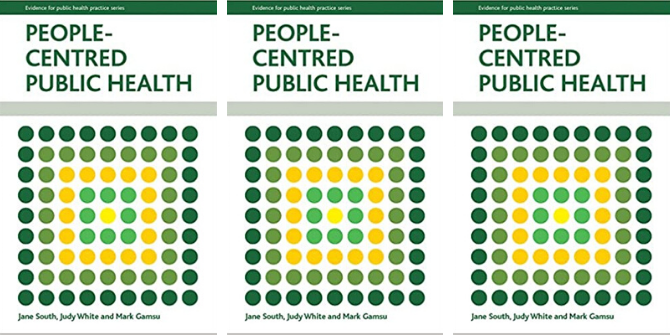 Matthew Partridge explores Russia’s turbulent journey to becoming an economic and political superpower, as charted in Daniel Treisman‘s new book, The Return. Overall a useful work, providing a narrative history of the last two decades and an overview of some of the issues facing Russia.
Matthew Partridge explores Russia’s turbulent journey to becoming an economic and political superpower, as charted in Daniel Treisman‘s new book, The Return. Overall a useful work, providing a narrative history of the last two decades and an overview of some of the issues facing Russia.
 The Return: Russia’s Journey from Gorbachev to Medvedev. Daniel Treisman. Simon & Schuster. 2011.
The Return: Russia’s Journey from Gorbachev to Medvedev. Daniel Treisman. Simon & Schuster. 2011.
This is a fascinating time to be writing about Russia. While the invasion of Georgia in 2008 led many to worry that Soviet-era ambitions are being resurrected, it is impossible to pick up a newspaper without seeing Russia referred to as one of the emerging BRIC (Brazil, Russia, India and China) superpowers of the twenty-first century. David Cameron recently endorsed a controversial partnership between BP and the Russian energy conglomerate Rosneft while the Obama administration has pledged to “push the reset button” in its relations with the Kremlin.
Recent events in the Middle East also make a study of modern Russian history extremely pertinent. While the hopes of protestors in Egypt and elsewhere could ultimately be frustrated, with incumbent regimes managing to re-assert their authority or even more dictatorial Islamist ones emerging in their place, there is at least the possibility that this may be the Arab world’s 1989. If so, The Return: Russia’s Journey from Gorbachev to Medvedev by Professor Daniel Treisman of University of California Los Angeles could be an extremely useful guide to future events, since it focuses on Russia’s transition from the centre of the Soviet Union to a democratic nation state.
The first four chapters of The Return provide brief biographies and narrative histories of the four Russian leaders since 1985; Mikhail Gorbachev, Boris Yeltsin, Vladimir Putin and Dmitry Medvedev. These chapters are well-written and Treisman is not afraid to challenge received wisdom, especially with regards to Yeltsin’s time in office during the 1990s. While most commentators blame Yeltsin for economic mismanagement, tolerating corruption and creating the conditions for Putin’s later authoritarianism, The Return reminds readers that Yeltsin faced strong institutional constraints that limited his effectiveness. It also contends that Yeltsin’s decision to grant large degrees of autonomy to certain regions may have prevented Russia itself from fragmenting.
Treisman then takes a thematic look at individual topics such as the final breakup of the Soviet Union, the economy, political reform, ethnic and regional separatism within Russia itself and Russian foreign policy. Again these are well written and he is unafraid to take a contrarian viewpoint, and back up his arguments with evidence, including quantitative data. Indeed, he even presents several charts with regression analyses.
Treisman’s work contains several flaws, however. Firstly, he believes that the breakup of the USSR was due to the fact that Gorbachev’s economic and political reforms coincided with a global recession. This meant that public discontent with the system rose at the very time the regime was starting to foreswear the repressive policies of previous eras. He argues that had Gorbachev taken a harder line against the protests as late as 1990, or even if Yeltsin had been a better diplomat, the USSR could have survived in some form. Consequently, little attention is paid to key events that occurred before 1987, such as the rise of the opposition movements in the Warsaw Pact countries or the war in Afghanistan.
Treisman’s analysis also lacks consistency. For instance, in the chapter on Yeltsin, Treisman claims that the influence of the “oligarchs” during the Yeltsin years has been exaggerated, with businessmen like Berezovsky merely “a convenient excuse for failure and a target against whom public anger could be deflected”. However, less than thirty pages later, it is suggested that Berezovsky’s patronage was responsible for Putin rapidly overtaking Yevgeny Primakov, the previous favourite to succeed Yeltsin, in the race to become Russian President. This tendency to self-contradict, both directly and indirectly, reaches a peak in the material covering the last decade and the present day. For instance, the two narrative chapters dealing directly with Putin and Medvedev are critical of them, painting a bleak picture of vote-rigging, strict censorship and corruption, where “the heads of the three main television channels were summoned to the Kremlin every Friday to hear how the week’s events were to be covered”. In contrast, the final chapter aggressively defends the current regime and harshly criticises negative rankings given to the Russian political system by international human rights organisations such as Freedom House.
Ironically, the Putin and Medvedev regimes are perfect examples of how autocracy can function within a system that is nominally democratic. Treisman therefore misses an opportunity in the concluding chapter, which discusses the state of present day Russia and what the author sees as its future prospects, to examine how such a “soft dictatorship” can operate and (apparently) sustain itself. Overall, The Return is a useful work, providing a narrative history of the last two decades and an overview of some of the issues facing Russia.
This review was first published on the LSE British Politics and Policy blog on 13th February 2011.
——————————————————————————————-
Dr Matthew Partridge completed a PhD in Economic History in 2011 at the London School of Economics. A senior writer for MoneyWeek, he has also written for The Guardian, Times Higher Education and the websites of Prospect and New Statesman.







